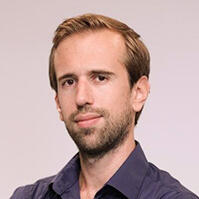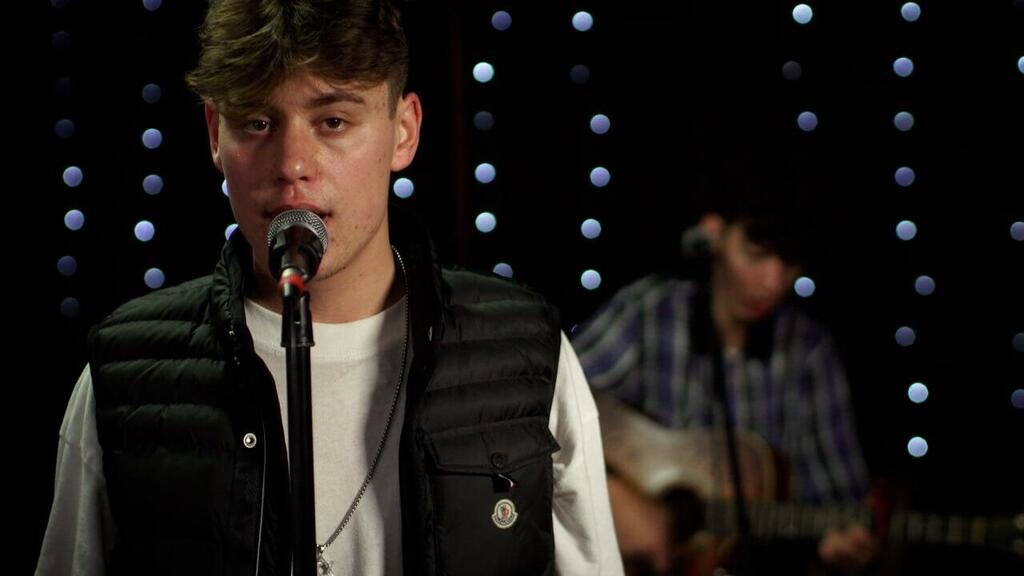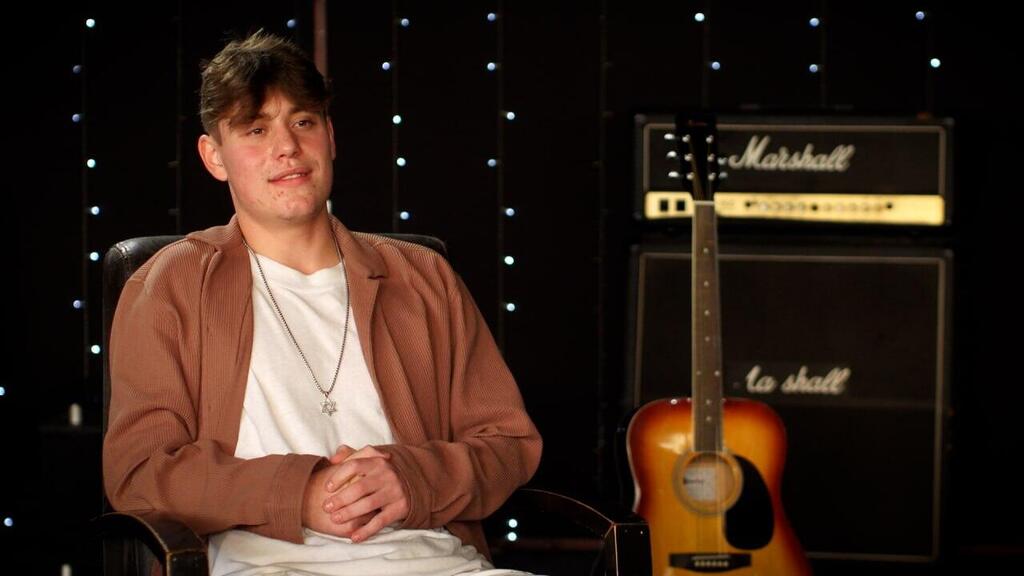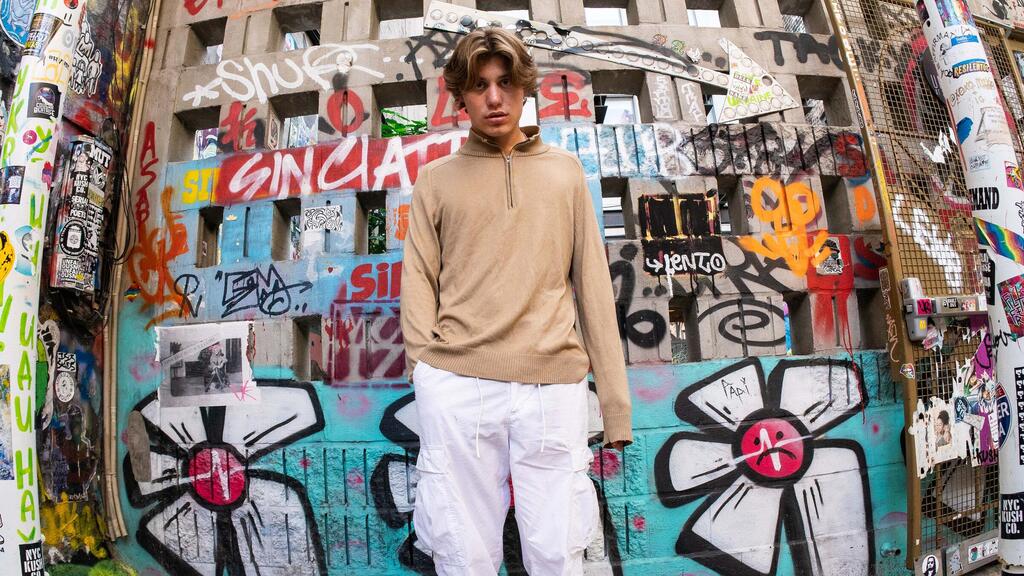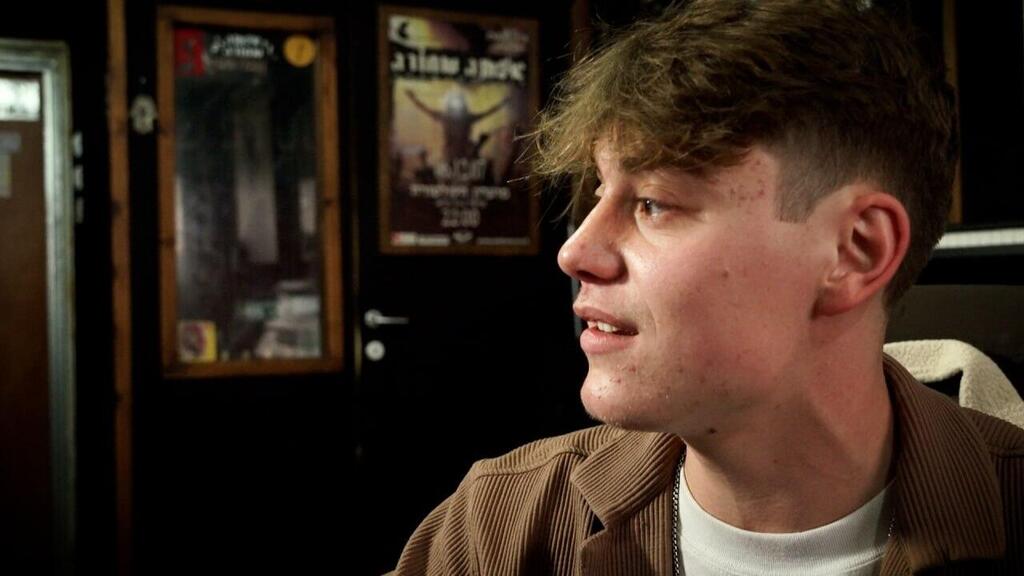Following dad's footsteps: Matisyahu's son in an interview
(Videographer: Eli Dassa)
Laivy Miller, an 18-year-old pop singer from Brooklyn, hopes to be a voice of hope for his generation. Known as "the Jewish Justin Bieber" abroad, he has a direct connection to another famous singer, his father, Jewish rapper Matisyahu.
More stories:
Music amid war
Laivy surprisingly decided to stay in Israel for a longer time than he initially planned when he arrived a few months ago for a visit and a planned show. He now continues to study in a yeshiva while working on his music. "Coming to Israel, to a new country with a new perspective and a new foundation was really like eye-opening,” he says.
"I could have stayed in America, but I wanted to experience more in my life and write more songs and build an audience and a new crowd." Laivy decided to study in a yeshiva during the day and continue producing music in the evenings. He had a performance planned for October 12 that was canceled due to the war.
During the outbreak of the war on October 7, Laivy stayed with a friend in Efrat, who woke him up that morning and urged him to run to the protected room. Laivy, still half-asleep, didn’t understand what was happening until he heard a loud explosion outside.
"I remember in my chest I felt this feeling that I never really felt before. Like I was in danger and I didn't know what to do." A week later, Laivy returned to his family in New York, who wanted him to stay with them.
Laivy decided to resume working on his music, and together with his father, he performed at Columbia University, which saw several antisemitic incidents and protests across campus. " You could see the kids’ faces go from scared to feeling united, feeling a togetherness,” Laivy explains, saying that Israel has a variety of Jewish creators while in America, he felt he could contribute more in supporting Israel.
However, after a month of doing so, he felt that his place to be was in Israel and decided to return. "I don't want terrorism to make decisions for me, so I said, ‘Screw it, I'll come back to continue my journey,' and returned here."
Laivy has been coming to Israel with his family since he was young and has always felt a connection to the country. "We'd always visit the Kotel Pray walk around Jerusalem. I have a few cousins here, so we'd stay by them. And I've always felt very connected even though I've lived in America and I didn't necessarily live here I was blown away.”
Being a Jewish artist
Laivy’s connection to Judaism is difficult to explain, and he admits that he’s still trying to understand it himself. On the one hand, he observes Shabbat and occasionally wears a kippah; on the other hand, he doesn’t necessarily observe other commandments and doesn’t wear religious attire.
Laivy, who described himself as growing up on his father’s tour bus, was exposed to the stage from a young age. His father bought him a small drum set so that Laivy, at the age of five, was able to play alongside him behind the scenes.
"Just having that knowledge of being able to be on stage and be confident helped me a lot. I think I was jealous of my dad on stage. You know, I thought if he gets to be in front of all these people, I want to be in front of all these people.”
His songs talk about this relationship. He asks if God hears his prayers, and also acknowledges that his song Serenity was written during a period in which he observed Shabbat. “I think, being Jewish is more than just like wearing a kippa or showing it. It's knowing you're a Jew,” he says.
A connection with music
Music and singing accompanied Laivy throughout his life, and he used them to express himself from a young age when he invented songs even while playing with his toys: "I was playing with my toys. And I would set them up like they were going to battle. And I would start singing like songs about them.”
When he started high school, the COVID-19 pandemic was at its height, and Laivy found himself very bored. At this stage, music began to turn from his hobby into his profession. “I remember being bored and my dad was like ‘Yo, you should learn how to produce music.’ And every day from 9:00 AM to like 10:00 PM at night before I would crash out, I would just sit there, record, and write songs all day. And I started playing them for my family. I was super hyped, even if they weren't good at the time. Eventually, I played a song for my dad and his reaction was like crazy. He said ‘You know, this is some Justin Bieber sh*t.’”
LAIVY performing "Serenity"
(Video: Eli Dassa, Ori Stav)
At this point, after a year and a half of producing music in his room, Laivy dropped out of school and traveled to Los Angeles, connected with an up-and-coming producer and with company K Projects10, and recorded his first singles when he was only 16. "I was happy."
Does being the son of a famous singer put pressure on you?
"It creates expectations of you, like, ‘he has to do this very good,’ or ‘he has to be a reggae singer, not a pop singer,’ or ‘he has to go in this direction.’ But my dad always taught me to do our own thing and be who we are. So that's always what I try to do.”
Inspirational songs
Laivy has so far recorded six singles, including the song Serenity, which, according to him, deals with finding oneself in the midst of chaos. "Everything is happening now, and you always feel like you need to chase things to be happy, whether it's a girl who loves you, or a job, and you can't love someone until you love yourself, so I feel my goal now is to make music that inspires people and that helps us create peace and serenity and help us grow together.”
LAIVY performing "We're Human"
(Video: Eli Dassa, Ori Stav)
This week, Laivy released another single, We're Human, which talks about all of us being equal. "There’s this idea that I've been putting into my song of growth and growing in relationships, growing in life, growing like Torah and in God. It's like a journey of finding yourself.”
However, he managed to perform in one single show in Tel Aviv during his stay. "Israelis in Tel Aviv have a hipster vibe. I remember that feeling in America where no one feels safe wearing a Star of David and a kippah, and here some people have it on in the audience, and it feels great."
Guitar: Aryeh Ackermann
Cajon: Nadav Segalovitz


